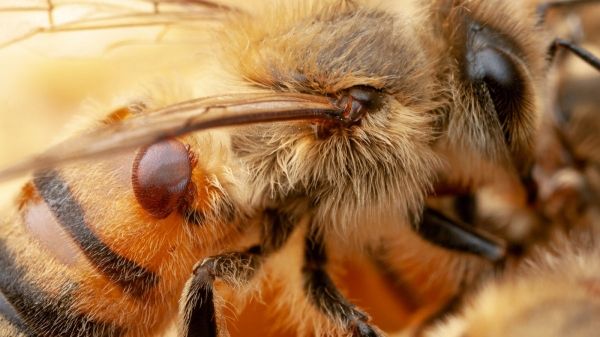Scientists from The University of Texas at Austin report in the journal Science that they have developed a new strategy to protect honey bees from a deadly trend known as colony collapse: genetically engineered strains of bacteria.
An increasing number of honey bee colonies in the U.S. have seen the dwindling of their adult bees. According to a national survey, beekeepers lost nearly 40% of their honey bee colonies last winter, the highest rate reported since the survey began 13 years ago.
The engineered bacteria live in the guts of honey bees and act as biological factories, pumping out medicines protecting the bees against two major causes of colony collapse: Varroa mites and deformed wing virus. The researchers believe their method could one day scale up for agricultural use because the engineered bacteria are easy to grow, inoculating the bees is straightforward and the engineered bacteria are unlikely to spread beyond bees.
“It has direct implications for bee health,” said Nancy Moran, a professor of integrative biology and the primary investigator on the study.
Read more at University of Texas At Austin
Photo: A Varroa mite, a common pest that can weaken bees and make them more susceptible to pathogens, feeds on a honeybee. Photo credit: Alex Wild/University of Texas at Austin.


